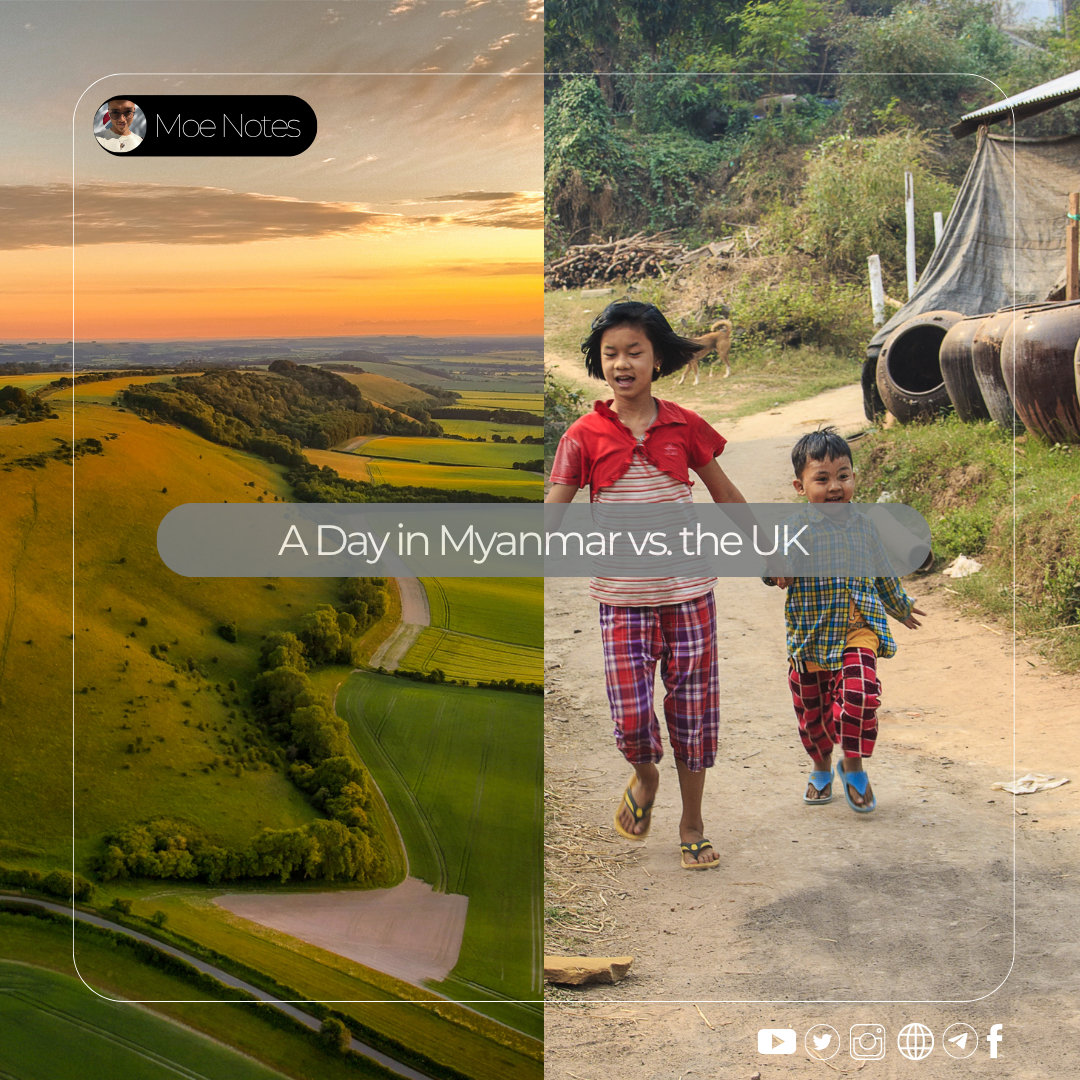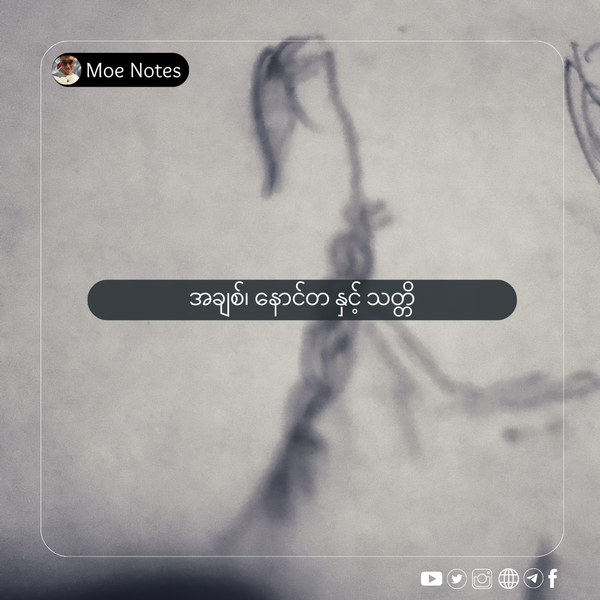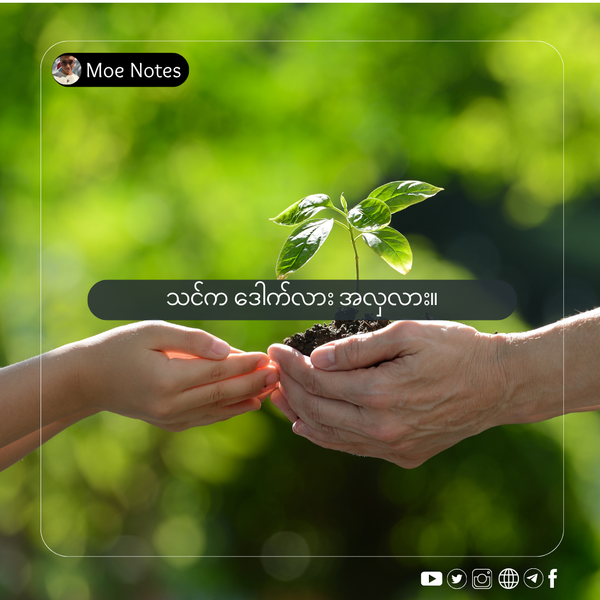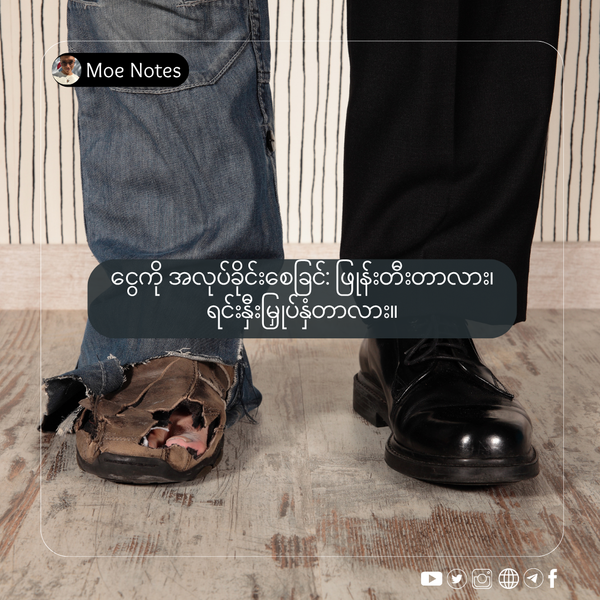A Day in Myanmar vs. the UK: A Comparison of Education and Life

"Studying abroad is not just about being academically gifted."
The article is also available in [Burmese]
Today, I want to make a comparison. A comparison between my life in Yangon a few years ago and my current life in the UK. This isn’t about saying one is better or worse. It’s about sharing a vivid picture of how two different environments can shape a person’s daily life, their thoughts, and their very existence.
Part 1: The Sounds of Waking Up
Waking Up in Burma
The morning in Yangon begins with a symphony of sounds: the calls of the pea-seller, the chants for donations. “Donations, please,” “Boiled peas...”, “Monks are coming for alms.” From 5 or 6 AM, the sounds of water pumps, machinery, and general noise signal the start of the day. At home, you hear the sounds of family prayers, cooking, and eating. If you live near a market, you hear the chatter and arguments of shoppers and vendors. And sometimes, you’re woken up not by sound, but by the heat from a power cut.
Waking Up in the UK
“...”
You hear nothing. You might listen to the chirping of birds or the faint sound of a passing car. That’s it. This silence can be a peaceful way to start the day, but at times, it can also amplify the feeling of loneliness. Waking up alone in a room with a single bed, a desk, a small window, and your charging phone and laptop can be quite daunting, especially for someone who grew up in a large family.
Part 2: The First Meal of the Day
Breakfast in Burma
“What’s there to eat?” “I’ll just go out and eat something.” “Sister, 500 kyats worth of boiled peas, please.”
In Yangon, the options for food are endless. Despite rising prices, you can step outside your door and easily find mohinga, coconut noodles, or Shan tofu.
Breakfast in the UK
“There’s nothing left to eat, I need to go shopping.” “The delivery hasn’t arrived yet.” “The shops aren’t open yet, and it’s too expensive to eat out.” “I wonder if there are any leftovers from last night.”
Here, everything is in your own hands. If you didn’t cook the night before, you have to wake up early and cook for yourself. It’s time-consuming and tiring. Lately, I’ve come to rely on nutritionally complete foods like Huel. A single shake gives me the time and nutrition I need for the day.
Part 3: The Journey to University
Commuting in Burma
“Mom, hurry up, I’ll be late for school.” "The traffic is terrible, I’ll have to wait for the next bus.”
Commuting in Yangon is a journey filled with uncertainty. Will there be a traffic jam? Will the bus be on time? Is it safe from pickpockets? You’re always travelling with a sense of anxiety.
Commuting in the UK
There’s a bus at 8:00 and another at 8:30. I’ll make it. If not, I’ll just take a scooter.”
Here, things are more predictable, but they come with their challenges. The weather is bad, so if you have to wait for the bus, you’ll have to endure the cold. People queue properly, so you can’t just push your way on. You have to dress appropriately for the weather, and an umbrella is a must.
Part 4: The Classroom Experience
The Classroom in Burma
When you enter the classroom, as soon as the teacher arrives, everyone must stand and greet in unison, “Good morning, teacher.” The rules are strict. “Phones will be confiscated,” "Stand outside the classroom,” "I’ll call your parents.” These are the threats you hear constantly. The teacher is the authority, and the students are merely the recipients of information.
The Classroom in the UK
In the UK, perhaps because it’s a university, students are treated as adults with equal rights. When a lecturer enters the room, they are greeted with a casual “Hiiiiii.” No one really cares if you’re dozing off or looking at your laptop. The main things are to be respectful of one another and to take responsibility for your learning.
Lecturers constantly encourage questions with phrases like, “Are there any questions?” No matter how “dumb” your question might seem, they will answer it patiently. Because they are also practising professionals, their teaching, which connects theory with their real-world experience, is incredibly valuable.
Part 5: Money, Survival, and Sacrifice
Financial Insufficiency
With the inflation of the Myanmar currency, the value of the money you have decreases, even if the number stays the same. What used to be 300,000 MMK for £100 is now only about £70. In this situation, almost every student without an independent income faces financial challenges.
What You Value vs. What You Pay For
If your priority is to study in the UK, you have to accept the high costs. A university education is not something you can get just by trying harder or working longer hours. If you want to save time on shopping, you have to pay for delivery. If you're going to save time waiting for the bus, you have to buy a bicycle. These are all problems that can be solved with money.
Does Hard Work Always Pay Off in Your Studies?
Another thing is that just working hard doesn’t guarantee success. Even to just pass, you have to be very focused and dedicated. As one teacher told me, “To learn a subject, you have to be obsessed with it.” Even if you don’t like the subject, you have to be obsessed with it to some extent and find joy in the process to succeed in the long run.
Conclusion
At the end of this comparison, what I want to say is that education is not just found in books. Every moment of your daily life is a lesson. The life I lived in Yangon taught me how to interact with people and understand the ways of the world. The life I’m living in the UK is teaching me how to stand on my own two feet and take responsibility for my own life.



